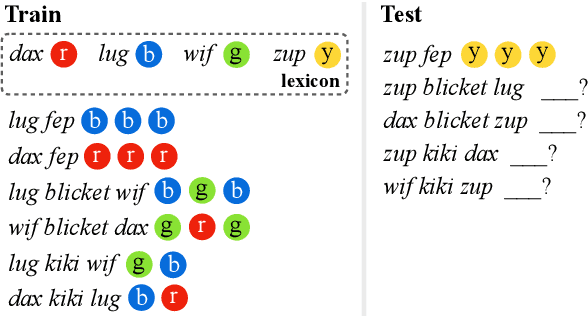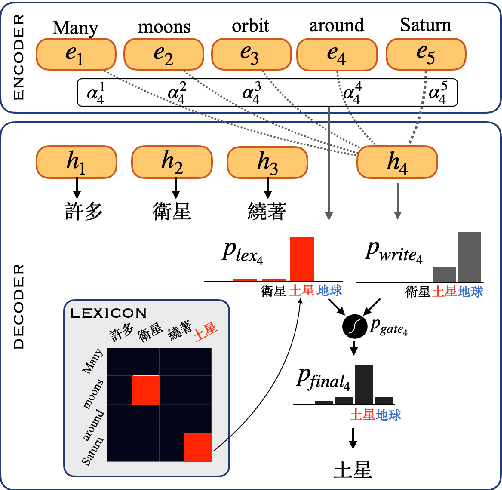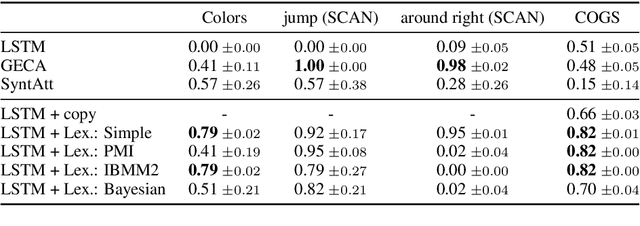Lexicon Learning for Few-Shot Neural Sequence Modeling
Paper and Code
Jun 07, 2021



Sequence-to-sequence transduction is the core problem in language processing applications as diverse as semantic parsing, machine translation, and instruction following. The neural network models that provide the dominant solution to these problems are brittle, especially in low-resource settings: they fail to generalize correctly or systematically from small datasets. Past work has shown that many failures of systematic generalization arise from neural models' inability to disentangle lexical phenomena from syntactic ones. To address this, we augment neural decoders with a lexical translation mechanism that generalizes existing copy mechanisms to incorporate learned, decontextualized, token-level translation rules. We describe how to initialize this mechanism using a variety of lexicon learning algorithms, and show that it improves systematic generalization on a diverse set of sequence modeling tasks drawn from cognitive science, formal semantics, and machine translation.
 Add to Chrome
Add to Chrome Add to Firefox
Add to Firefox Add to Edge
Add to Edge